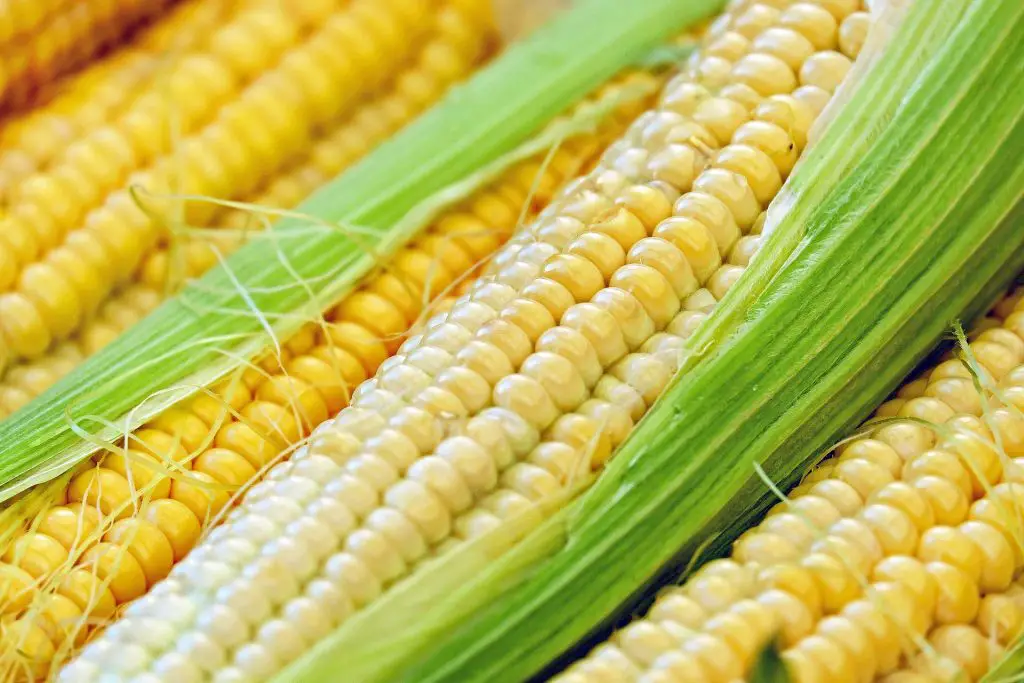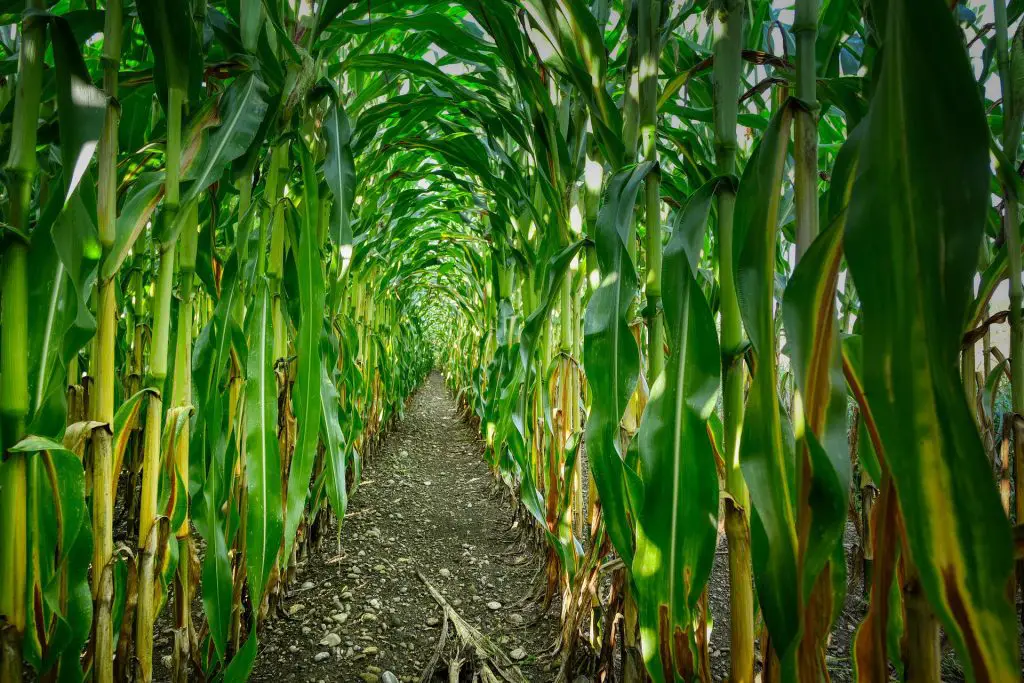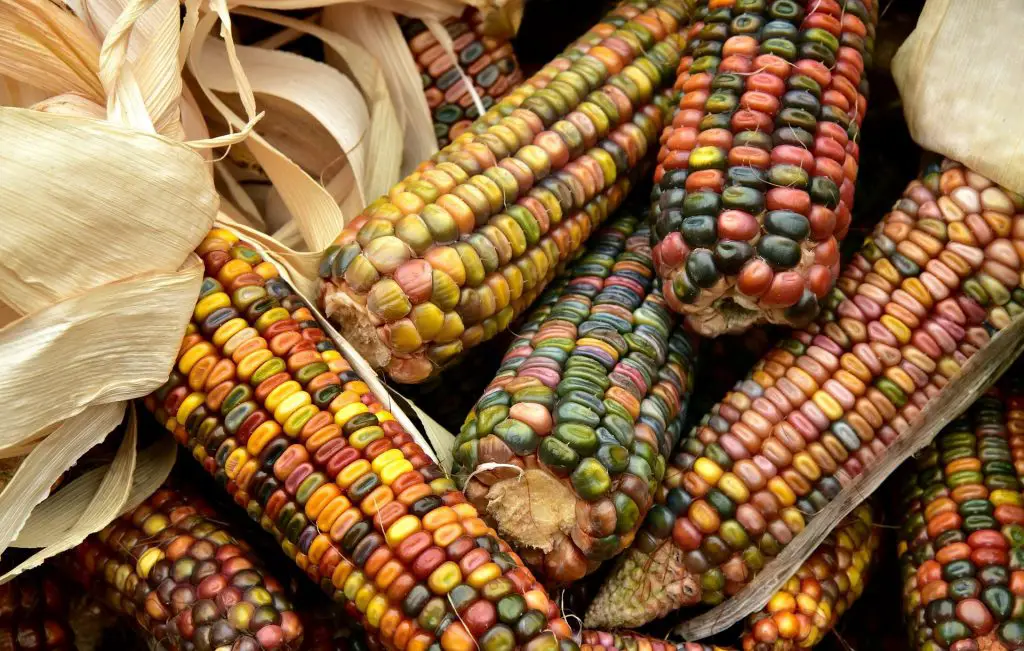Will Deer Eat Corn? And How To Protect Your Crops. Corn is one of the most popular crops to grow at home in your own garden because the cobs are so much sweeter than what you can purchase from your local grocery store, however, if you live in an area where there is a large deer population one of the most common questions asked is will deer eat my corn crops.
Corn is one of the most popular foods on the menu for wild deer populations with many deer eating both young plants and mature crops. As such you’ll need to provide significant protections to these types of plants if you wish to get a harvest this year.
T,o protect your corn there are several common strategies that are used however the only 100% effective methods is to exclude the deer from your garden entirely. This will require fences around the garden that are approximately 8 ft tall. The height of the fence may seem excessive, however, academic studies have shown that most deer can jump a 6ft fence if required.
But for many people building an 8 ft fence around their property is either impractical or cost-prohibitive to do so there are a few other options that can be implemented, however, none of them are absolutely 100% proof.

The first strategy that is commonly used is to select plants that are deer repellent or generally the deer are not interested in eating. These plants need to be placed on the outer sections of the garden to actively discourage deer from entering your garden. Ideally these plants should be relatively tall as this will stop the deer from seeing into the garden where you may have more appetizing plants.
The plants that deer typically avoid are as ones that are poisonous, thorny, or highly fragrant. However, these general guidelines are not an absolute indicator in all cases so it is advisable to double-check the individual plants that you were considering selecting. Things such as rosemary and french lavender are highly recommended because they are relatively large plants.
The second most common strategy is to use deer repellent systems which you can purchase in many different forms. These products can be categorized into two general groups chemical repellents and mechanical repellents. Generally chemical repellents are the more effective types, however, their effectiveness does vary depending upon the nature of the product.
Chemical Deer Repellents
There are many different types of chemical deer repellents on the market, however, as mentioned above their effectiveness does vary substantially depending on the nature of the formulation that is used in the products. Academic research has shown that the most effective chemical deer repellents are those that are fear-inducing rather than the ones that are simply fragrant or alter the taste of the plant.
However, even the most effective fear inducing products on the market have their limitations. There has been a study conducted on a range of deer repellents over an extended period of time. What the researchers observed was that even the most effective repellents could only repel the deer for approximately 10 to 12 weeks and after that period most deer would begin to return to normal feeding habits.

The reason for this is believed to be because the deer start to become accustomed to the smells of the fear-inducing repellents which are typically made of ingredients such as coyote urine, blood, and putrefied egg.
To overcome these issues we generally recommend that people purchase two different repellents and alternate their usage every 3 months or so which increases the chances of keeping the deer at bay. The two products that we generally recommend are deer out and plantkydd because both of these formulations are fear-inducing products that are based on different ingredients and therefore smell different. If you would like to check out the price click on the links above to visit Amazon.
Mechanical Deer Repellents
Mechanical deer repellents also come in a range of different forms which generally can be categorised as motion-activated sprinklers, ultrasonic devices, and predator eyes. Of these products, the motion-activated sprinklers appear to be the most effective, however, like the chemical repellents above they do have similar performance limitations.
These devices generally will work well for a limited period of time before the deer become accustomed to their presence and begin to ignore them. As such we generally recommend that you use these devices sparingly and a critical times of the year to ensure that they remain effective. These critical times could include periods of the time when you have made your harvest coming from up in your vegetable garden.
Additionally, we recommend that you periodically move the position of the motion-activated sprinklers within the garden and also turn them on and off again to ensure that you maintain a surprise factor for the deer. The product that we recommend for this purpose is the Orbit 62100 Yard Enforcer because it has a relatively wide detection range which means that you only need to buy one or two sprinklers to cover most yards. To check out the latest price of these materials click on the link above to visit amazon.

The second type of device which is widely sold in the marketplace in many different forms is the ultrasonic devices. These products have had substantial amounts of research conducted on them as they are used commonly for a range of different pests which include rodents, deer, squirrels, and also domestic animals such as dogs and cats.
The broad range of research that has been conducted on devices has been quite conclusive and showing that these devices are not effective at all and do not affect the behavior of animals significantly. As a result of this, we do not recommend that you purchase any devices of this type because they simply do not work.
The third type of device which is common is predator eyes. These devices have not had anywhere near the same degree of research as some of the other products mentioned above. As a result of this, we’ve had to rely upon feedback from those people that have purchased and used these products in the marketplace.
Generally what I’ve observed in looking at the reviews is that many customers are disappointed with the performance of these products and while it is not possible to be absolutely 100% sure about how effective these products are, it is safe to assume that at the very least if these products are effective they are only effective for a short period of time and therefore do not provide any additional advantages over the product mentioned above which we can be much more certain about. As a result of this, we do not recommend these products,
I hope you found this article useful and are able to successfully grow corn at home in your own garden. If you have any additional comments or questions please leave them in the section below.
Relevant Articles
How Long Does It Take For Corn Seeds To Germinate? How Does Temperature Effect It?
When Do You Pick Corn? What happens If You Pick Corn Too Early?
Can You Harvest Corn More Than Once In A Season?
